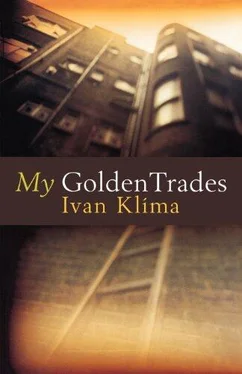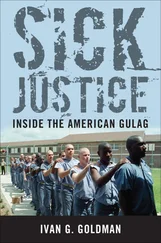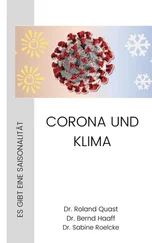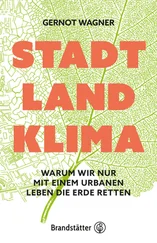Ivan Klima - My Golden Trades
Здесь есть возможность читать онлайн «Ivan Klima - My Golden Trades» весь текст электронной книги совершенно бесплатно (целиком полную версию без сокращений). В некоторых случаях можно слушать аудио, скачать через торрент в формате fb2 и присутствует краткое содержание. Год выпуска: 1998, Издательство: Granta UK, Жанр: Современная проза, на английском языке. Описание произведения, (предисловие) а так же отзывы посетителей доступны на портале библиотеки ЛибКат.
- Название:My Golden Trades
- Автор:
- Издательство:Granta UK
- Жанр:
- Год:1998
- ISBN:нет данных
- Рейтинг книги:4 / 5. Голосов: 1
-
Избранное:Добавить в избранное
- Отзывы:
-
Ваша оценка:
- 80
- 1
- 2
- 3
- 4
- 5
My Golden Trades: краткое содержание, описание и аннотация
Предлагаем к чтению аннотацию, описание, краткое содержание или предисловие (зависит от того, что написал сам автор книги «My Golden Trades»). Если вы не нашли необходимую информацию о книге — напишите в комментариях, мы постараемся отыскать её.
My Golden Trades — читать онлайн бесплатно полную книгу (весь текст) целиком
Ниже представлен текст книги, разбитый по страницам. Система сохранения места последней прочитанной страницы, позволяет с удобством читать онлайн бесплатно книгу «My Golden Trades», без необходимости каждый раз заново искать на чём Вы остановились. Поставьте закладку, и сможете в любой момент перейти на страницу, на которой закончили чтение.
Интервал:
Закладка:
stuck it shut. 'Could you deliver this for me?' he asked.
'What's in it?'
'You saw — a letter.'
'What's it say?'
'That's irrelevant. But it mustn't fall into their hands. If. . if they go after you, you have to destroy it.'
'Wouldn't it be better if you delivered it yourself?'
Hadn't he told me they were after him, and that it was a miracle he escaped?
Very well, why didn't he stay until dark when he could deliver it himself.
'It's worse at night than in broad daylight.'
This letter would change everything. He promised. As soon as I brought him a reply, he would disappear, because he would know where to go, and how.
I had to bring him back a reply as well?
'You're not going to leave me in this alone, are you?' he said. 'Surely you understand, now that they've arrested your father.' He gave me a name and address and told me to memorize it. He told me how to get there as well: I had to take the tram and trolley-bus and then walk the rest of the way. And I had to be constantly on the lookout. If I saw them coming after me. .
Yes, he told me that already. But how should I destroy the letter?
You could eat it.'
I went to explain to my mother that my friend would be staying until evening, but I had to go to a lecture. I got dressed to go out. I was afraid, and angry. He could at least have told me why they were chasing him, why I should have taken this risk for him, and what was in the letter. What if they caught me before I had a chance to swallow
it? Besides, I had never had any burning desire to deliver spy messages.
He came into my room one more time. He was very nervous. 'If you're thinking of turning me in,' he said, 'they won't believe you anyway, not when they find me here.'
I wasn't hurt by his insinuation because the possibility had occurred to me. But despite his threats I could never have brought myself to turn someone over to the police who probably hadn't done anything.
I set off in the rain, which had at least emptied the streets. In those days, there were so few cars that I would certainly have noticed if I were being followed. My errand took me all the way to Jinonice on the outskirts of Prague, a village with narrow streets and low country houses. Occasionally a dog barked at me, and I would start with fright. Here, on the hilltop, the rain had changed to sleet that slid down my forehead and into my eyes.
Who was I was going to see? What if he were an agent for some spy service? Or head of an entire network they had just uncovered, and I stepped into his house as they were arresting him?
I couldn't drive out the scarecrows they had put out in my mind at the many political schooling sessions I'd had to attend. They, the secret police, were still fresh in my memory. Grey faces, grey suits. I didn't want to admit it, but they reminded me of the men who had turned over our flat at the beginning of the war, except that those men had spoken German.
I was twenty-two, I wanted to paint pictures and write love poetry, not visit houses I might never leave.
The person I was taking the message to lived in a cottage with a well-kept garden. The tree trunks were painted with
lime, the flower-beds were protected with evergreen branches and the leaves had been carefully raked from the grass. The curtains were drawn. I checked several times to make sure I'd got the right house. There was no name on the door. I rang the bell.
For a long time nothing moved. I seemed to be able to discern the outline of a face behind the curtains. I remained still; so did the face. I longed to tear up the letter, throw it off a bridge and never come here again.
However, my uninvited guest was waiting for me back home and if I didn't deliver the letter, he wouldn't leave. He would stay with us until they caught him or I drove him out, and then they would arrest him. He, of course, would tell them where he had hidden.
I rang the bell again. At last the door opened. There stood a man with a wreath of white hair around a bald head. His face was sickly yellow, he had a sharply protruding nose and on it, a pair of spectacles with thick lenses. 'What do you want?'
I asked him if he was — , the man I was looking for.
He said he was. 'And what do you want?'
'I have a letter for you.'
He nodded and invited me in.
I stepped into a small entrance hall with a floor of well-scrubbed boards. A few pairs of shoes stood beside a painted wooden box, along with a sweet-smelling basket of apples. A cross hung over the doorway. Through another half-open door I could see shelves full of books. I handed him the letter. He took it carefully, scarcely touching it. He put it on the box, took a penknife out of his pocket and slit the envelope open. He stared for a while at the paper with the message on it, then he folded it and put it back in the
envelope and handed it to me. 'I don't know what this is about. I don't know this person. I don't understand what he wants from me.'
This took me by surprise. 'But he… I mean you… he knows you,' I stammered. 'He sent me here with this note. He's expecting a reply.'
'So I see,' he said. 'My reply is that I don't know him and I don't understand what he wants from me.'
He spoke with such emphasis, with such exaggerated certainty, that it occurred to me he was lying. He was afraid of me. He didn't know me and was therefore afraid that I was part of a trap.
I didn't know what to do. I refused to take the letter back home. I asked him to destroy it. Then I suggested that he come with me because the writer of the letter was waiting at my place and desperately needed to speak to him.
He took the envelope from me and went into the next room. I heard a stove door snap shut. Then silence. Nothing moved; from somewhere high up, a cat miaowed.
If he came with me, what would my mother say? She was already frightened enough without me bringing a stranger into our flat. The neighbours might notice. Or was this a trap to catch both of us? What if all of this had to do with my father's arrest? What if they simply wanted to test me to see how I would behave, and, for some reason, they wanted to test this man as well. Or perhaps he really did not know what any of this was about, and I was behaving like a fool.
He appeared at last, wearing a black, threadbare winter coat. 'Well, let's be off,' he said.
We arrived at our flat just after mid-day. I didn't think anyone had seen us. Most people were at work.
The two of them did know each other. I left them alone
in the next room, but even though they lowered their voices, I could tell that they were arguing. Half an hour later they announced that they were both going. As he was leaving, the old man said, 'God bless you, and forgive me. These days you just don't know who's the good messenger and who's the evil one.'
It wasn't until years later that I fully realized just how oppressive and destructive a state is in which people are afraid to accept messages brought to them by a stranger. I never heard from either man again and so I never found out what the message I delivered said.
Outside it had stopped raining. The Arabs had long ago disappeared somewhere.
The guitarist was on duty in the porter's lodge again, and because his girl-friend wasn't with him today, he was playing. It was a wild Spanish melody, and he played with such passion and concentration that if a gang of masked bandits had carried the director of the institute out bound and gagged he would certainly not have let it interrupt him. I listened for a while, but my sense of duty did not permit me to stay until the piece was over. I had already spent too long in Strašnice because of the rain.
It was noon, and from a small kitchen adjacent to the hall I could smell soup, as Miss Kosinová made lunch for everyone who didn't eat in the works canteen. 'Did you read,' Mr Klíma was saying to the only member of the Party in the institute, Mrs Rybová, 'that they've set up a special prize for scientists in America?'
Читать дальшеИнтервал:
Закладка:
Похожие книги на «My Golden Trades»
Представляем Вашему вниманию похожие книги на «My Golden Trades» списком для выбора. Мы отобрали схожую по названию и смыслу литературу в надежде предоставить читателям больше вариантов отыскать новые, интересные, ещё непрочитанные произведения.
Обсуждение, отзывы о книге «My Golden Trades» и просто собственные мнения читателей. Оставьте ваши комментарии, напишите, что Вы думаете о произведении, его смысле или главных героях. Укажите что конкретно понравилось, а что нет, и почему Вы так считаете.












